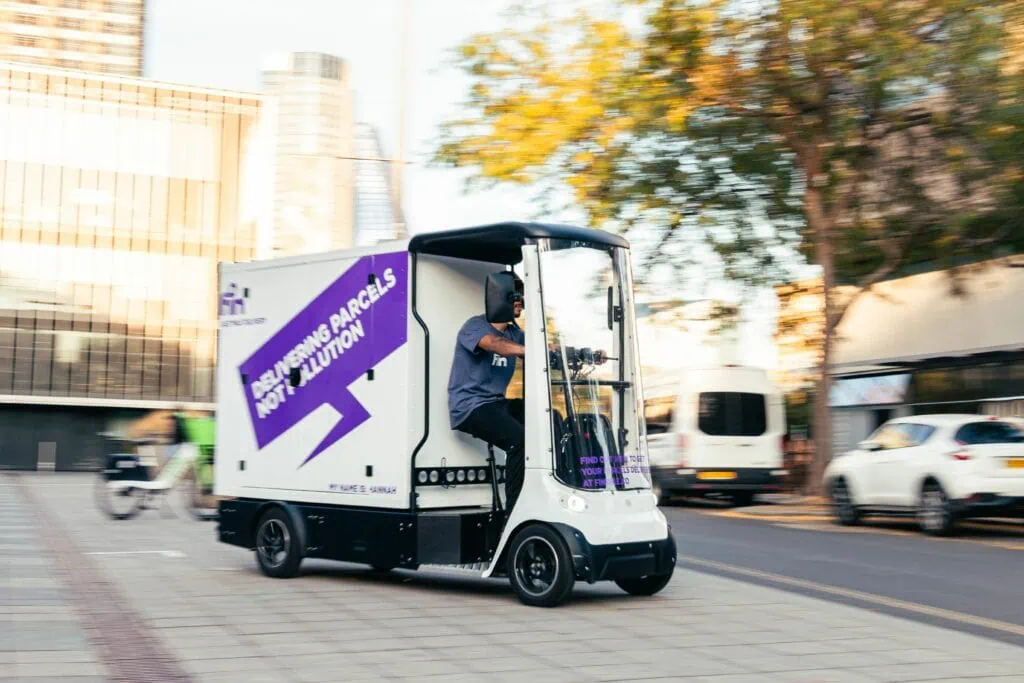
Our new fulfilment centre in Wroclaw, Poland, allows you to connect easily with customers all over Europe, including the EU’s key markets. However, before you can start fulfilling your orders from Poland, you’ll need to register for VAT.
Read more about our brand new, sustainable EU fulfilment centre hereVAT in Poland
VAT, or Value Added Tax, is a tax applied to goods and services that the end user pays. It’s an indirect consumption tax that is applied at every stage of a product’s production and distribution. You’ll need to charge your customers VAT and pass that amount to their local Tax Authority. VAT is called different things across the EU – in Poland, it’s Podatek od Towarow i Uslug (PTU) – but all EU Member States use VAT.
Each EU Member State has its own VAT infrastructure and rates. Goods and services are grouped into categories, and different rates of VAT are applied to those categories. For example, the Polish government applies their lowest rate to “basic food”, which includes things like bread, meat and vegetables.
Poland has three VAT rates:
| Standard | 23% |
| Reduced | 8% |
| Super Reduced | 5% |
Knowing which rate to apply to your products can be deceptively complicated. In the UK, for example, the rate applied to biscuits can change depending on the amount of chocolate on it. If your gingerbread man has more than “a couple of dots for eyes” it’s standard-rated. For this reason, we recommend you consult an expert if you’re unsure.
Do I Need to Register for VAT in Poland?
Whether you need to register for VAT in Poland depends on whether your business is based in or outside the EU. The following applies to businesses selling goods B2C through their own websites. If you’re selling through a marketplace (like Allegro.pl) or B2B, your VAT obligations in Poland will vary. Get in touch to find out more.
My B2C Business is Based in the EU
If your business is based in the EU and you sell goods stored in our Polish fulfilment centre across the border to EU customers, you won’t need to register for VAT in Poland. Instead, you should register for the One Stop Shop (OSS) scheme, in the country where you’re based. You’ll apply the VAT rate local to your customer (i.e French VAT on goods brought by customers in France) and report it on the OSS return.
If you want to sell your goods to Polish customers from our fulfilment centre in Wroclaw, you will need to register for VAT in Poland. You’ll apply Polish VAT to your Polish orders and declare those sales on your Polish VAT return.
My B2C Business is Based Outside the EU
If you’re based outside the EU (including the UK) and want to sell the goods you’re storing in Poland to Polish customers, you’ll have to register for VAT there. You’ll charge Polish VAT on those sales and report it on your Polish VAT returns. To sell those goods to customers in other EU countries you’ll have to apply for OSS in Poland on top of your VAT registration. You’ll then charge those customers their local VAT rate and declare those sales on your OSS return.
What do I Need to Register for VAT in Poland?
As well as registering for VAT in Poland, you’ll also need to apply for a Polish Tax Identification Number – a NIP. You’ll need to submit the number alongside a VAT-R form, and several supporting documents. The documents you’ll need are:
- The documentation of your business’ registration on the commercial registry where you established your company
- A copy of your partnership agreement (if you have one)
- Confirmation of your taxpayer status in the country where your business is based
- Documents showing your legal right to any property or premises your business might hold in Poland
- Bank account statements, to help establish your identity and business activity
- Your Power of Attorney documents, if you employ a person or business to sort all this for you
You can also submit a Statement of Planned Activity. It’s optional, but shows the Tax Authority your reasons for registering, and might prevent questions that would otherwise slow the process down.
All of these documents will need to be originals, translated into Polish. Where your directors need to sign, the signatures have to be physical, and all your Directors must sign the paperwork (but only up to three, if your company has more than this). This is often the slowest part of registering for VAT in Poland. You’ll have to physically mail your documentation to your company’s Directors (if they’re not local to you) and then post everything to the Tax Authority in Poland.
Registration and Reporting
If your business is based outside of the EU you won’t need to incorporate a company or have an address in Poland to register for VAT. However, you will need a Fiscal Representative (unless your business is based in the UK). A Fiscal Representative is jointly and severally liable for VAT you owe. Once you’ve got a representative in place, you’ll need to add documentation of your agreement with them to the list of documents you’ll have to send with your application.
How long it takes for a registration to be processed depends on whether the Tax Authority has any questions regarding your documentation. On average, it takes about two weeks for a registration to be processed. Once your registration has been approved, you’ll receive your VAT number, and your certificate of registration will be sent to you in the mail.
Once you’ve got your number, going forward you’ll submit a VAT return in Poland monthly. Depending on the size of your business, the Polish Tax Authority might decide that you only need to submit a quarterly return. If you need to make any corrections to a previous return, you should add those to the next return you file.
VAT Refunds
Once you’re registered for VAT you can claim back certain instances of VAT on your return. If the amount you’re due back is higher than the VAT on your sales you can have the difference refunded to you. However, the Polish tax authority will only refund into a Polish bank account.
Opening a Polish bank account can be fairly expensive and for a lot of small businesses it’s not worth the hassle. To open an account, you will have to go to Poland in person and instruct a lawyer to prepare the bank application and a notary to verify the documents. You’ll also have to be in Poland to formally open your account and sign some more documents. The cost for the whole process averages around EUR 3000.
Get Started with Your Polish VAT Registration Today
Europe’s e-commerce market is full of opportunities and Poland makes a great entry point. You just need to make sure you’re meeting your tax obligations. Registering for VAT in Poland is simple in theory – fill out a form and send in some documents. Understanding what you need to send and in what form makes it complex.
VAT is complicated, so SimplyVAT is making it simple. They help businesses get their cross-border tax right, and they’re rated the best in the industry by sellers like you. From their free eBook, you can get more information about OSS or its sister scheme, IOSS (Import One Stop Shop) and their alternatives. It was written specifically for e-commerce sellers looking to expand into or across the EU. If you’re not sure you need to register you can double check with their EU VAT Quiz.
If you’re looking for a new partner for your EU fulfilment, get in touch with us today.
Contact Us
More insights >
A Guide to UK Market Entry for Canadian Brands
Canada’s traditional export routes have been radically changed recently and the UK market could be a good alternative to the US. Read our guide to UK market entry.
ILG Partners with Fin – Sustainable Logistics
ILG is thrilled to announce its new partnership with Fin Sustainable Logistics, a pioneer in zero-emissions delivery services.

